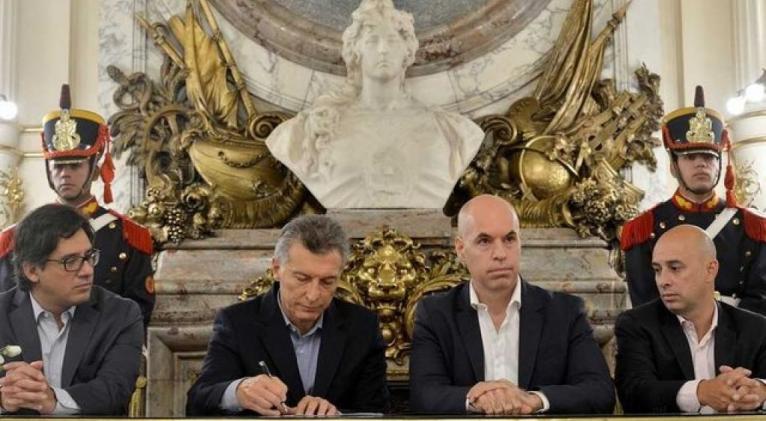Is Argentina's Macri Trying to Top Trump Immigration Policies?
especiales

Argentine President Mauricio Macri signed an executive order Monday amending the country's immigration law in order to speed up the deportation of foreigners who have committed crimes — a measure justified as a way to address insecurity in the country.
RELATED: Macri's First Year Gave Argentina Highest Inflation in 14 Years
The preventive measure titled, “Decree of Necessity and Emergency," signed last week without prior parliamentary approval, makes deportation processing time as short as two months, and foreigners will be prohibited from returning to Argentina for eight years at best, or permanently. This modifies the existing legislation, which stipulated that deported foreigners would be banned from returning for up to five years.
The National Office of Migration is entitled to request a judge order preventive detention for foreigners until their deportation is confirmed by administrative and judicial authorities.
The immigration law identifies having a criminal record as grounds for preventing entry to the country. If a traveler fails to disclose a criminal record in the country of origin and has a history of participation in organized crime, such as drug trafficking or organ trafficking, they could be denied entry, even if there is no conviction.
The decree explicitly states that drug traffickers will be denied entry and that " a report that says that the person is in a terrorist network" would also result in denial of entry or deportation.
The Center for Legal and Social Studies denounced that the reform will make the situation of migrants even more precarious, subject to “police harassment, harder inception into school, harder access health services, with the constant threat of being arrested.”
According to the center, the decree will allow authorities to control migrants in an irregular situation, without judicial supervision for their rights, including migrants without criminal records.
“The government wants to set up a false issue in order to remove from the public agenda more urgent and relevant issues and, at the same time, demonstrate a so-call commitment to crime prevention,” added the CELS.
Vicepresident Gabriela Michetti said this reform doesn't mean her party, Cambiemos, is seeking to ban a specific group.
"Cambiemos's position is contrary to what Trump said these last days about immigration in the United States and the wall," said Michetti. "Trump's policy is intended to be protectionist for all countries, not just Latin America."
RELATED: US Homeland Security to Defy Court Ruling, Continue Muslim Ban
As Macri does not rule with a majority in both chambers of Congress, he opted for an emergency decree. The reform also plans to transfer border issues from the Interior Ministry to the Security Ministry.
The administration is also working on a measure meant to speed up the exchange of databases with Latin American countries, especially with Colombia, Mexico and Peru in order to prevent migrants with a criminal record from entering Argentina and to better control migrants entering with fake identification.
Although Macri cited an increase in the country's population of foreigns in prison to more than 21 percent, according to the CELS, the proportion of foreigners in the total prison population in Argentina does not top 5 percent.
The decree comes after Macri's policies during his first year in office sparked widespread controversy. For example, in his first 12 months, almost 193,000 Argentine workers lost their jobs between December 2015 and November 2016, according to a report issued earlier this month by Conicet, FLACSO and the universities of La Plata and Avellanada. The report blamed the neoliberal measures adopted in recent months.
Statistics from the Argentine Catholic University found that unemployment reached almost 10 percent by the end of 2016, while informal labor rose to 18 percent.













Add new comment